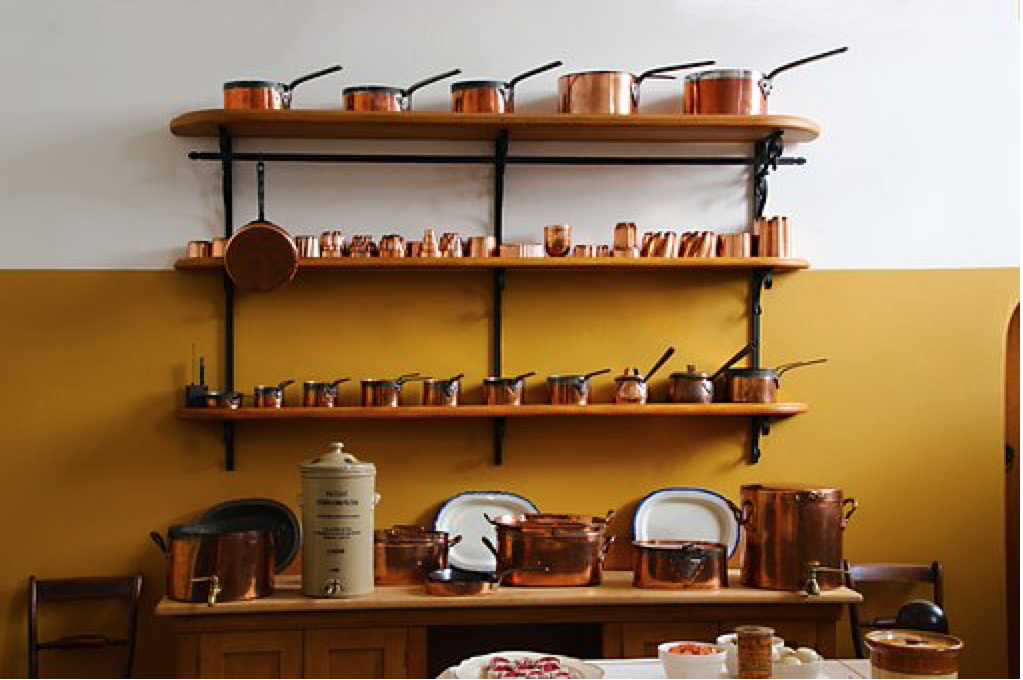 Photo courtesy of Pixabay.com
Photo courtesy of Pixabay.com
By Justin Bennett and Gregory Brian Wood
A messy house is a major source of stress for many people. Seeing lots of unorganized stuff every day overwhelms your sensory perception with objects that cause anxiety because they’re out of place. It makes it hard to relax and, as Psychology Today notes, it can cause some people to feel guilty or embarrassed. The feeling of being overwhelmed and not knowing where to begin can cause some people to put off or avoid dealing with the problem.
Actually, it’s easy to stop clutter from invading your life by observing a few simple habits every day. Your stress level will decrease, you’ll feel more confident, and you’ll maintain a better sense of well-being. Check out the following tips, presented below by Gregory Brian Wood.
Offsite Storage
Bear in mind that decluttering can be an emotional process, especially if you have to face choices like giving away your grown kids’ childhood toys and figuring out what to do with your great-grandmother’s antique chest of drawers. A nice, thorough cleaning could breathe new life into furniture that seems out of place or simply just worn down. Do a simple search for local furniture cleaning companies to find reputable professionals. Make sure to take into account any warranties that the piece may come with, as well as choose a service that uses the appropriate tools and cleaning solutions for certain fabrics and materials.
But if there are some items you’re simply not ready to give up but don’t have space for, consider storing them in a facility outside of your home. According to Life Storage, the average monthly cost to rent a 10-by-5-foot unit ranges from $65.23 to $76.30 and up to $217.26 for a climate-controlled 10-by-20-foot unit.
Put Clothes Away
There was a good reason your mother used to nag you to keep your clothes put away and not leave them on the floor. Keeping them on hangers or folded in a drawer helps prevent clutter from developing and gives you a sense of being organized. If your clothes are dirty, put them in a clothes hamper or a bucket. You’ll feel better about your home and your life in general, and you’ll spend less time looking around for an odd sock or a belt when you need to get to work. If you’re having trouble keeping things organized, consider purchasing a closet organizer or install a closet organization system so you always know where to find things. Engaging a professional will also yield amazing results.
Get Rid of Duplicates
We all accumulate objects we don’t need. Most people have opened a birthday or Christmas present only to discover it’s something they already own. Getting rid of duplicate items is an excellent way to declutter your life. If you’ve accumulated eight pairs of tennis shoes, give any you really don’t need to Goodwill or the Salvation Army. Remember, the fewer objects you possess, the less you have to worry about.
Paper Piles
Accumulated paper is a major source of clutter and anxiety. Not knowing how to find a bill or document you really need can be upsetting. As Additude notes, you may be inclined to get rid of papers you don’t need but are afraid you’ll accidentally throw out something you’ll later need. Setting up a filing system is a good way to cope with the problem. Keep bills in one pile or drawer, official documents in another, and so forth. You can purchase a file cabinet for as little as $20. If you don’t have a filing cabinet or don’t want to purchase one, consider getting a paper-stacking tray or another option that provides a reliable system.
Kitchen Clutter
A chronically cluttered kitchen can be troubling, especially if you’re sensitive about being disorganized. Take the time to wash a dish, put it in the dishwasher, or store it in the cabinet. Run the dishwasher as soon as it’s full, and put clean dishes and glasses up right away. If you have kids, consider assigning someone the job of loading and emptying the dishwasher, or take turns.
Remember that you need to keep each room organized to defeat clutter. If clutter’s a persistent problem, you may need to examine spending habits to make sure you’re not purchasing things you really don’t need. If feelings of stress persist, incorporate brightly-colored plants or scent diffusers to create a more relaxing environment. Once things are under control, review your home periodically to make sure you’re staying on top of things.
